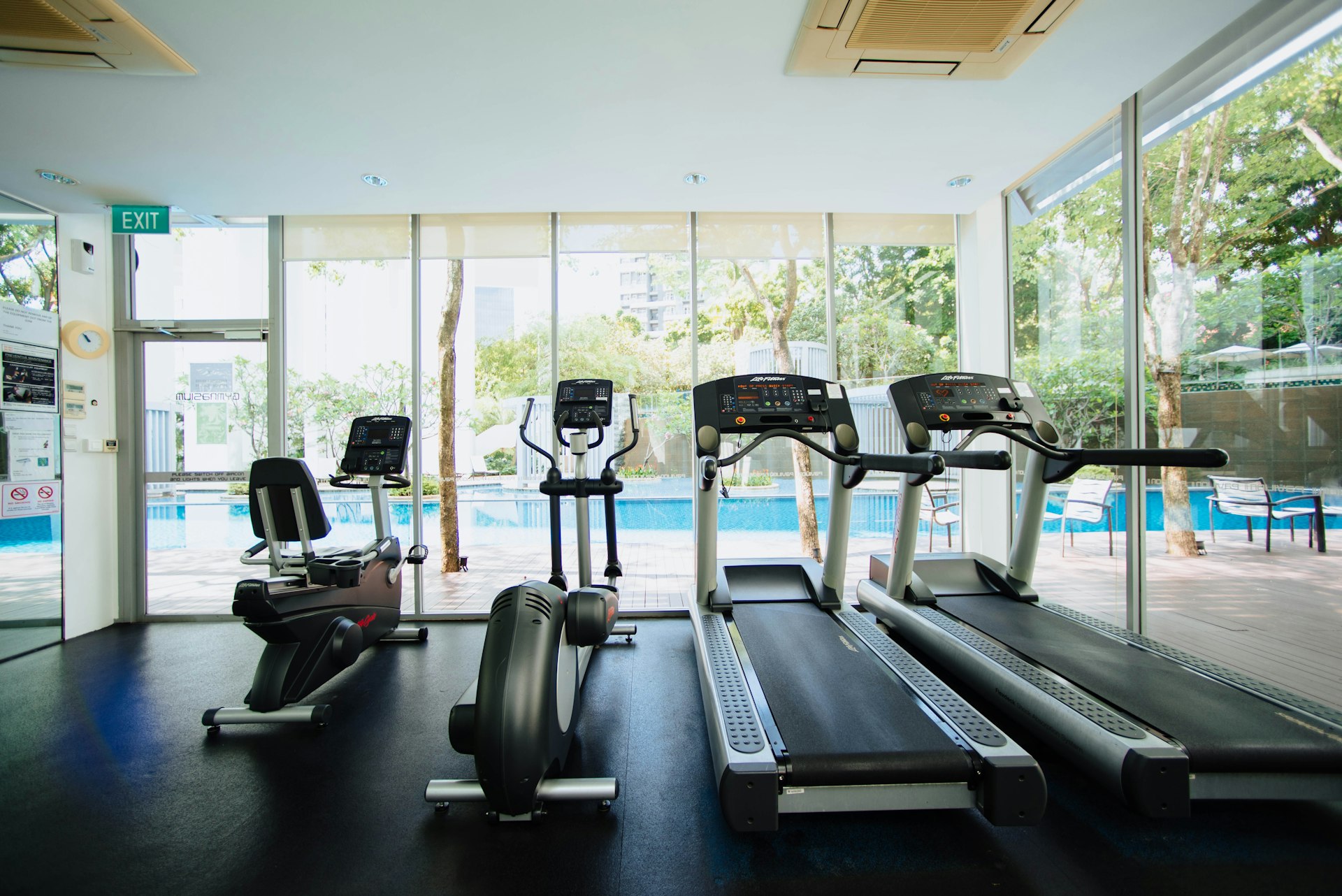How to Build Resilient Lifestyle Habits for Uncertain Times

Photo by Yanny Mishchuk on Unsplash
Introduction: Navigating Uncertainty with Resilience
Uncertain times challenge us to adapt, persevere, and find new ways to thrive. Whether the source is economic instability, health crises, or personal setbacks, adopting resilient lifestyle habits is essential for maintaining well-being and growth. Resilience is not just about endurance; it’s about cultivating flexibility, strength, and a proactive mindset. This article explores practical, evidence-based habits and provides step-by-step guidance for building resilience in everyday life.
1. Prioritize Self-Care: The Foundation of Resilience
Self-care involves intentional actions to nourish your body, mind, and emotions. In uncertain times, neglecting self-care can lead to stress, anxiety, and diminished performance. Prioritizing sleep, nutrition, exercise, and relaxation techniques helps restore balance and boost your ability to cope with challenges.
For example, practices like yoga, tai chi, and meditation combine deep breathing and movement, supporting both physical and emotional health. These activities can help regulate your nervous system and relieve stress [5] .
To implement self-care:
- Set a regular sleep schedule, aiming for 7-9 hours per night.
- Choose whole, minimally processed foods, and limit sugars and unhealthy fats.
- Engage in daily physical activity, such as walking, stretching, or more structured exercise routines.
- Practice relaxation methods, such as deep breathing or guided meditation.
Potential challenges include time constraints and motivation. To overcome these, start with small, manageable steps and gradually build new routines. If you struggle to maintain consistency, consider pairing self-care with enjoyable activities or accountability from a friend.
2. Focus on What You Can Control
Uncertainty often triggers feelings of helplessness. Redirecting your attention to actions within your control is a powerful strategy that reduces anxiety and fosters empowerment [1] . Examples include organizing your daily schedule, setting achievable goals, and controlling your exposure to distressing news.
For practical implementation:
- List tasks or areas of life you can influence (e.g., health, work routines, relationships).
- Break larger goals into smaller, actionable steps.
- Limit time spent on social media or news outlets that increase stress.
- Regularly review and adjust your priorities based on what’s working.
Challenges may arise from external pressures or rapid change. In these cases, re-evaluate your goals and remain flexible, focusing on adaptability rather than perfection.
3. Cultivate Social Support and Connection
Strong social connections are vital during tough times. Support from friends, family, colleagues, or groups provides encouragement, perspective, and practical assistance [2] . Seeking help is a sign of strength, not weakness.
To build your support system:

Photo by Alexandra Lowenthal on Unsplash
- Reach out to trusted individuals regularly, even if only for brief check-ins.
- Join local or online support groups focused on shared interests or challenges.
- Offer support to others; mutual aid strengthens relationships and promotes well-being.
- If professional guidance is needed, consider contacting a licensed counselor or therapist.
Common challenges include isolation or reluctance to ask for help. Overcome these by scheduling regular social interactions and reminding yourself that everyone faces difficulties.
4. Practice Gratitude and Mindfulness
Gratitude shifts your focus toward positive aspects of life, making it easier to face adversity. Mindfulness, or present-moment awareness, helps you manage stress and appreciate what you have [2] .
Steps for integrating gratitude and mindfulness:
- Maintain a daily gratitude journal, noting three things you’re thankful for.
- Practice mindfulness techniques such as deep breathing or guided meditation.
- Use reminders (apps, alarms) to pause and reflect during the day.
For example, spending a few minutes each morning in reflection can reduce stress and improve emotional resilience. If you find it difficult to be mindful, start with short sessions and gradually increase duration.
5. Embrace a Growth Mindset
A growth mindset views challenges as opportunities to learn and develop new skills. Rather than fearing failure or setbacks, resilient individuals seek out lessons and remain open to change [2] .
To foster a growth mindset:
- Reflect on past experiences-identify what helped you overcome obstacles and what you learned.
- Reframe mistakes as valuable feedback, not personal shortcomings.
- Set learning goals for areas where you want to grow.
- Surround yourself with people who encourage growth and exploration.
Challenges may include fear of judgement or resistance to change. Address these by focusing on incremental progress and celebrating small successes.
6. Reframe Uncertainty as Opportunity
Rather than viewing uncertainty as a threat, see it as a chance to explore new possibilities and expand your horizons [1] . This positive reframe can motivate action and innovation.
Try this mental exercise:
- Identify the worst-case scenario and consider how you would manage it.
- Envision the best-case scenario and what opportunities could arise.
- Brainstorm steps to maximize positive outcomes.
For example, a job loss might open doors to new industries or allow time for skill development. If reframing feels difficult, seek perspectives from mentors or peers who have successfully navigated uncertainty.
7. Manage Stress Proactively
Stress management is essential for resilience. Chronic stress can undermine health and decision-making, while effective coping strategies restore balance and confidence.
Key steps for managing stress:
- Identify triggers and adapt your response (e.g., relaxation, exercise).
- Use time management tools to prevent overwhelm.
- Practice self-compassion and avoid harsh self-criticism.
Resources like meditation guides and mental health support can further strengthen your coping skills [5] .
Alternative Approaches and Additional Resources
If traditional methods are challenging, consider creative pursuits, volunteering, or learning new skills. These activities can provide structure, meaning, and community support. For professional help, search for mental health services through reputable organizations or contact your healthcare provider for referrals.
For verified information on mental health and resilience, visit the official websites of organizations such as the American Psychological Association or your local health department. You can also search for “resilience training programs” or “mindfulness courses” in your area.
Key Takeaways
Building resilient lifestyle habits in uncertain times involves a combination of self-care, focusing on controllable factors, cultivating social support, practicing gratitude and mindfulness, embracing a growth mindset, reframing uncertainty as opportunity, and proactive stress management. Each habit requires intentional effort and gradual practice, but together they foster adaptability, well-being, and a greater sense of purpose. Use these strategies to thrive, not just survive, during periods of unpredictability.
References
- [1] Gunn Psychological Services (2023). Strength Through Uncertainty: Building Resilience in Challenging Times.
- [2] Anchored Hope Therapy (2022). Resilience in Times of Uncertainty: Finding Strength in the Unknown.
- [3] Carolina Behavioral Care (2023). Strength Through Uncertainty: Building Resilience in Challenging Times.
- [4] UNC Kenan-Flagler Business School (2021). Staying resilient in uncertain times.
- [5] HelpGuide.org (2024). Surviving Tough Times by Building Resilience.
MORE FROM resultsdiscount.com













